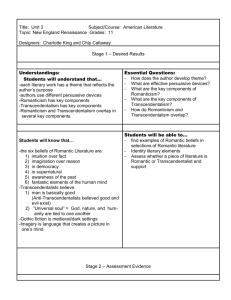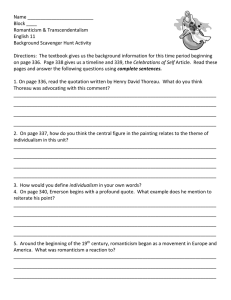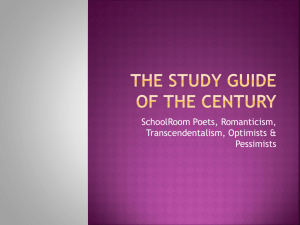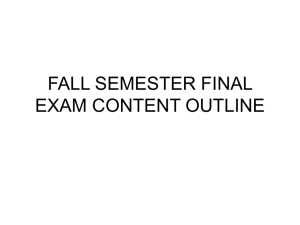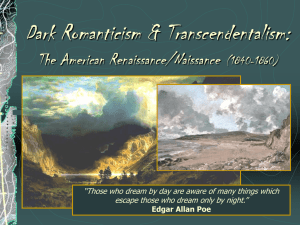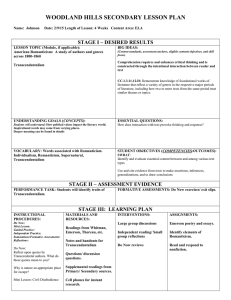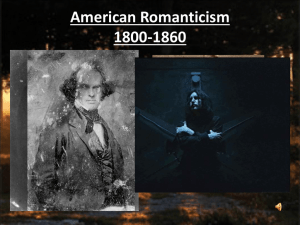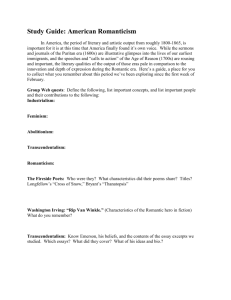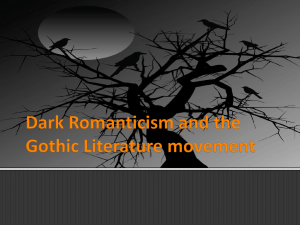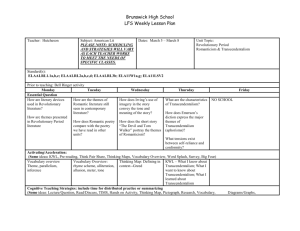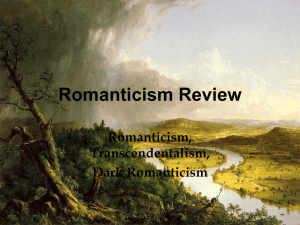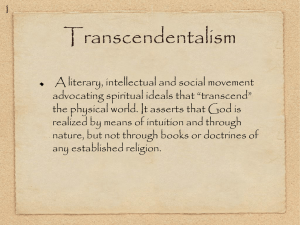The Elements of Romanticism A Renaissance in American Literature
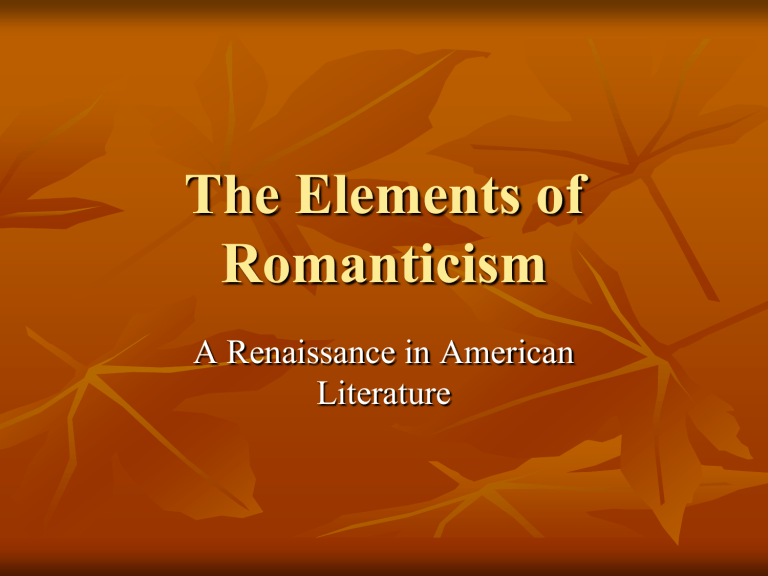
The Elements of
Romanticism
A Renaissance in American
Literature
The Rise of Romanticism
Reaction to the “cold” intellect (devoid of emotion) of the Age of Reason
Enlightenment and French Revolution refines the role of the individual
Scientific and Industrial Revolutions lead to interest in the unknown and new ways of thinking
Major reform movements such as abolitionism and women’s rights lead to the search for truth and the perfection of the social order
Rise of Transcendentalism and Unitarianism
Attempts to cultivate utopian societies
The move westward adds to American optimism
Elements of Romanticism
The quest for “pure beauty” and truth
The use of antique and fanciful subject matter
Interest in the past
Use of the grotesque, gothic, odd or queer
Escapism from American problems
Interest in external nature as a source of beauty and knowledge
Nature as a refuge and a revelation of God to the individual
Elements of Romanticism, cont.
Emphasis on emotion
Appeals to imagination/ use of the sublime and mystical (otherworldly)
Subjectivity of the speaker as opposed to objectivity
Common people as subject matter as opposed to “the great”
Originality/ New philosophies and ways of doing things
Romantic Techniques
Remote settings
Improbable/contrived plots (inclusion of magical/mystical/unexplained events)
Organic principle: form rises out of content
Authorial subjectivity
Appearance of authenticity
Romantic writing forms: essay, short story. poetry, novel
5 BASIC BELIEFS OF
TRANSCENDENTALISM
Everything is a reflection of God
- People are basically good
- People will still sin, but they will repent and will most of the time choose to do the right thing
- People are close to God
- Nature is great!
Contemplating nature can allow you to transcend the real world and go to a higher, spiritual level
- People can get closer to God without church
- Nature is as close as you can get to God
- Society (the opposite of nature) keeps people from getting to a higher spiritual level
-
5 BASIC BELIEFS OF
TRANSCENDENTALISM , cont.
A person’s INSTINCT (intuition) can lead them to understand
God’s spirit
Everyone can do this! Wealth, status, prior knowledge not needed.
- Stressed that people were basically good – their gut instincts could lead them to God
Individualism and self-reliance are better than following others or depending on tradition.
- People will make the right choices if given the chance
- Believed that government was not necessary
- Urged people to question tradition
- Materialism was not good; people should not be dependent on money or belongings
5 BASIC BELIEFS OF
TRANSCENDENTALISM , cont.
A person’s true feelings and intuition are more valuable than book knowledge.
- Average people were able to do this
- Money, wealth, status not necessary
- Trusted people to do and feel good things
American Romantic Authors
Washington Irving
Ralph Waldo Emerson
Henry David Thoreau
Nathaniel Hawthorne
Herman Melville
Edgar Allan Poe
Emily Dickinson
Influence of Romanticism &
Transcendentalism
Led to the American ideals of individualism and free thought
Celebrated multiculturalism and feminism
Encouraged reform
Emphasized self reflection and exploration
Paved the way for literary creativity of the modern era
Discuss
How does Emerson’s “Nature” illustrate some of the principles of the Romantic and
Transcendental movements?
